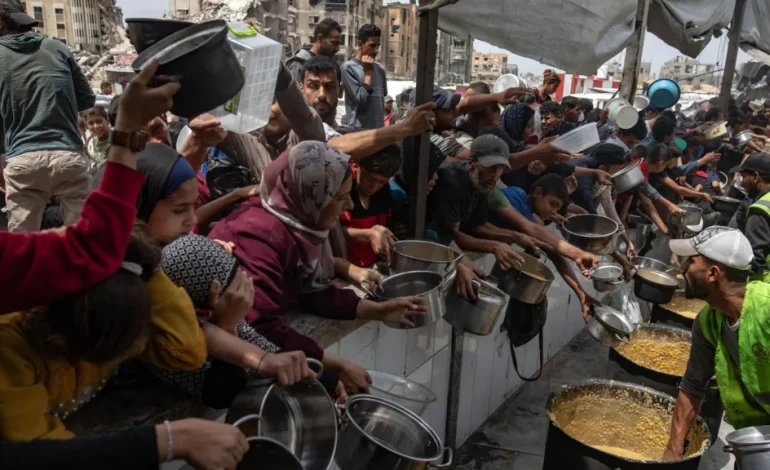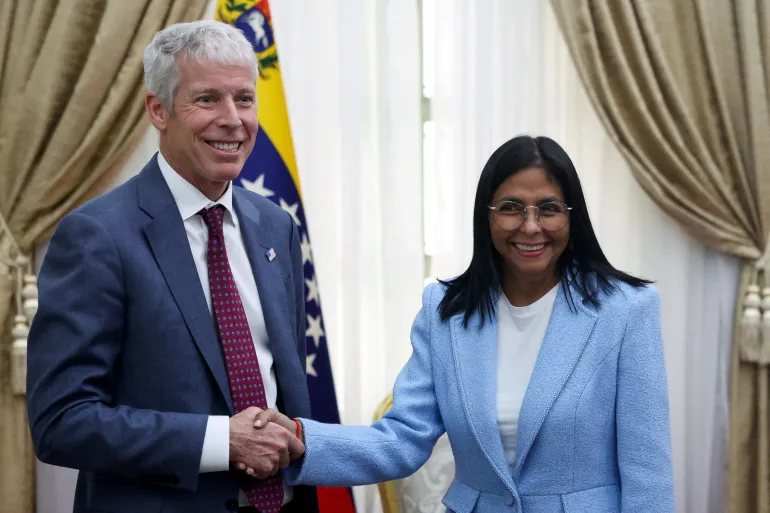UN Food Aid Exhausted in Gaza as Blockade Enters Eighth Week

The United Nations World Food Programme (WFP) has announced that its food aid supplies in Gaza have been fully depleted, as the Israeli blockade of the enclave continues into its eighth consecutive week.
The ongoing closure of border crossings has halted the entry of all humanitarian and commercial goods, exacerbating an already dire humanitarian situation in the densely populated territory.
In a statement to the media, the WFP confirmed that no food or aid has entered Gaza for over seven weeks, marking the longest such closure in the region’s history.
“This has severely undermined fragile markets and food systems,” the agency said, adding that it is now unable to meet the basic nutritional needs of Gaza’s population.
The blockade has prompted growing concern from international organizations and local authorities. Gaza’s Government Media Office has warned that over one million children are now at risk of famine and has urgently called for the immediate entry of food, medicine, and fuel into the Strip.
The restrictions were first imposed in early March by Israeli Prime Minister Benjamin Netanyahu. At the time, Netanyahu said the halt in aid was aimed at pressuring Hamas to agree to an extension of a previously negotiated ceasefire. The ceasefire subsequently collapsed, and Israel resumed its military operations.
In tandem with the aid crisis, medical services in Gaza have also deteriorated. Vaccination campaigns have stalled, with doctors reporting dwindling supplies of routine inoculations for children. Health officials warn that without basic immunizations, outbreaks of preventable diseases could follow.
Military activity continues across the territory. Shelling in areas such as Shujayea in eastern Gaza City has caused further civilian injuries and casualties. The Israel Defense Forces (IDF) stated that it has been targeting Hamas and its allies’ infrastructure, including what it describes as command centers used to orchestrate attacks. Civilian casualties, however, remain high, according to reports from the ground.
Since hostilities reignited in October 2023, following a deadly attack on Israel by Hamas that killed around 1,200 people and led to the taking of hostages, more than 51,350 Palestinians have been killed and over 117,000 injured, according to Gaza’s health ministry. Israel has defended its military campaign as necessary to dismantle Hamas, but the scale of destruction and civilian suffering has drawn increasing scrutiny.
The UN Human Rights Office has expressed concern over what it describes as persistent violations of international humanitarian law, including attacks on civilians and civilian infrastructure. It emphasized that under international law, Israel, as the occupying power, has an obligation to allow the entry of essential humanitarian supplies.
Israel, for its part, has stated that during a previous ceasefire, some 25,000 aid trucks entered Gaza, and it continues to accuse Hamas of diverting aid and using civilians as human shields. IDF officials also claim that they are taking precautions to minimize civilian harm, including issuing evacuation orders ahead of strikes.
However, the UN says that these evacuation orders have led to the repeated displacement of hundreds of thousands of Palestinians, often into overcrowded areas with little or no access to essential services. The agency warns this has created a situation where civilians are “being forced into shrinking spaces” while still facing significant threats from ongoing military operations.
In a separate incident acknowledged by the Israeli military, an Israeli tank strike in March killed a Bulgarian UN worker and injured five others in central Gaza. The IDF initially denied involvement but later took responsibility, calling it a tragic mistake.
Al Jazeera and BBC contributed to this report.









The latest news in your social feeds
Subscribe to our social media platforms to stay tuned